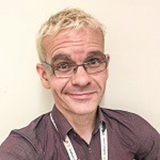We must support those who work at night
 The 2017 Nobel Prize in Physiology or Medicine has been awarded to Jeffrey Hall, Michael Rosbash, and Michael Young for “discoveries of molecular mechanisms controlling the circadian rhythm.”
The 2017 Nobel Prize in Physiology or Medicine has been awarded to Jeffrey Hall, Michael Rosbash, and Michael Young for “discoveries of molecular mechanisms controlling the circadian rhythm.”
Their work illuminates the genetic and molecular workings of our body clocks, which allow our physiology to respond to different needs and demands at different times of the day and night.
Increasingly, we are realising how intimately every aspect of our physical and mental health are tied to our circadian rhythms. When our lives are not in synchrony with our body clocks, there are significant consequences.
For many, the most obvious example is when we travel across the world, shifting timezones: we experience jet-lag. Jet-lag makes us feel awake and sleepy at the wrong times, we feel disorientated, sluggish, find it difficult to concentrate, are more likely to become anxious or irritable, have aches, pains, upset stomachs … we feel out of phase with the world around us. It can take days for our internal clocks to reset and, until they do, we can struggle to function.
Over 3 million people in Britain—more than 1 in 8 of the workforce—regularly work at night, many providing essential, critical services on which Britain’s smooth running depends. They are doctors, nurses, police, firefighters, paramedics, transport and maintenance crews, cleaners, call-centre workers, bakers, security guards, factory workers … all ensuring your life runs like clockwork in the daytime. For them, the experience of working against their body clocks, of feeling jet-lagged, isn’t an occasional annoyance due to travel—it’s a regular fact of life.
We must recognise that when we ask people to work at night that there are consequences.
As well as increased risks of long-term health problems associated with shiftworking, night workers are vulnerable in other ways, including a significantly increased risk of death by accident just trying to get home to their beds in the morning.
We must support those who work at night, both by giving them advice to help manage working at night better, but also by employers and organisations recognising that night-time work is physiologically unnatural.
We have been working to emphasise the importance of this within the NHS, where providing safe, effective and efficient healthcare around the clock depends on those who work at night.
At Evelina London Children’s Hospital, we include teaching on “Sleep for your own health” on shiftworking in mandatory staff induction, and Guy’s and St Thomas’ NHS Trust has launched “HALT: Take A Break”, a major campaign for all of its staff, emphasising the importance of managing fatigue, particularly at night. We work with pan-NHS organisations, including the Royal College of Paediatrics and Child Health, the Royal College of Nursing and the Association of Anaesthetists of Great Britain and Ireland, to work to change the culture about how we think about working at night, to emphasise that working at 3am is not the same as working at 3pm.
Those who work at night are essential to how Britain lives. Often unseen, we depend on them to provide services that make our lives safer, smoother, and more convenient.
Hall, Rosbash and Young have beautifully demonstrated how fundamental our circadian drive is to how our brains and bodies function. We owe it to all those who work at night, for their own health and for the quality of the work they do, to recognise that working against that drive is difficult.
We must support those who, without their unsung work in the dark, our lives would be very different.
Michael Farquhar is a consultant in sleep medicine at Evelina London Children’s Hospital. He has a particular interest in the impact of shift working and fatigue on NHS staff.
Competing interests: None declared.
- See also: Should doctors work 24 hour shifts?
